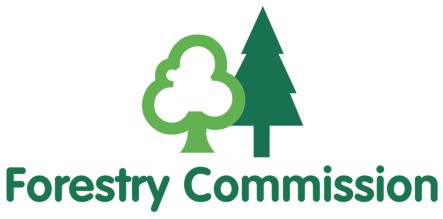Plant Health News - September 2024
Updated 13 February 2025
Pause of Scottish log exports to Ireland due to Ips cembrae beetles
Both Scottish Forestry and Ireland’s Department of Agriculture are working together on precautionary forestry measures after finding 3 Ips cembrae beetles (commonly known as the large larch bark beetle) in a trap in Passage West port in Cork.
Until further investigations have been carried out, a precautionary pause is now in place preventing all conifer timber with bark on being transported to Ireland from Scotland’s west coast Pest Free Area.
Whilst further investigations continue, no phytosanitary certificates for the export of logs from the Pest Free Area to Ireland will be issued.
Further details can be found on the Scottish Forestry website.
New import controls on Pecan wood from the US and Canada, and other woods from Canada
Following a pest risk analysis and a consultation, GB-wide measures have been introduced for 2 North American jewel beetles Chrysobothris femorata and Chrysobothris mali.
The legislative changes that introduced the new pest measures came into force on 31 May 2024 The Phytosanitary Conditions (Amendment) Regulations 2024.
There are already specific import requirements in place for most of the important timber species, therefore, the changes are unlikely to have a significant impact on trade.
New measures for chrysobothris femorata apply for the first time to wood of pecan (carya illinoinensis) from the US and Canada. Although pecan is from the same taxonomic grouping as hickories, other hickory species are not considered to be hosts of this species of chrysobothris.
The measures for the chrysobothris species also regulate several new hosts from Canada [footnote 1]. These include wood of beech, elm, hazel, hornbeam, horse chestnut, plane, walnut and willow (existing measures already apply to these species from the US).
Of significance to the trade will be the new requirements that apply to wood of plane and walnut originating in Canada. Also, the higher treatment standard of heat-treatment to 56 degrees Celsius /30 minutes now applies to wood of maple and wood of poplar from Canada.
The full list of hosts includes:
- apple
- beech
- birch
- cherry
- elm
- hawthorn
- hazel
- hornbeam
- horse chestnut
- lime
- maple
- oak
- pear
- pecan
- plane
- poplar
- rowan
- walnut
- willow
The exemption for oak barrels accompanied by evidence of heat treatment to 176 degrees Celsius for 20 minutes continues to apply.
The updated measures are summarised as follows:
- Annex 2: part A – both species added as new quarantine pests
- Annex 7: part A – new entries for solid wood at entries 138A and 138B and new entries for chipped and particle wood at entries 139A and 139B
- Annex 11: part A – new phytosanitary certificate requirements at entries 55 and 56
Frequency of checks on wood, wood products and bark (excluding wood packaging)
The phytosanitary risk categorisation for wood, wood products and bark was determined to be high-risk under the Border Target Operating Model (BTOM) (Plant Health News issue 48 - October 2023).
From 30 April 2024, high-risk plant products have been required to come through a Border Control Post (BCP) or Control Point (CP) where identity and physical checks will be carried out. The frequency rates for checks is determined by the Official Controls (Plant Health) (Frequency of checks) Regulations 2022.
The regulation requires the appropriate authority to publish the frequency rates for phytosanitary checks online; the rates for wood, wood products and bark are included in Table 1 on the Plant Health Portal.
If you import firewood, you can make use of the specific waiver codes to declare material as unregulated to avoid unnecessary holds by customs, whilst we phase in full checks on regulated material. If regulated material is transported with unregulated material the whole consignment will be held to enable checks to be carried out on the regulated material.
Wood packaging material used in the transport of goods of all kinds will be subject to targeted intelligence-led checks and is required to meet the International Standard for Wood Packaging Material ISPM15.
Finding of plane lace bug in Central London
On 5 September 2024, the Forestry Commission confirmed findings of the plane lace bug (Corythucha ciliata) tree pest in central London.
The plane lace bug is native to North America and is now widespread in mainland Europe, but not endemic to the UK. It feeds on the leaves of plane trees, and large populations can cause leaves to become bronzed or drop off earlier than they normally would.
Update of Forestry Commission complaints procedure
We recently reviewed and updated the process for managing complaints and appeals: Forestry Commission complaints procedure. A complaint is a way of telling us you’re not satisfied with an activity we’re undertaking, or a service that we’re providing.
You can complain verbally or in writing and should include:
- the nature of your complaint
- what stage of complaint you’re making
- evidence to support your complaint
- any supporting documentation
Read other editions of Plant Health News from the Forestry Commission.

